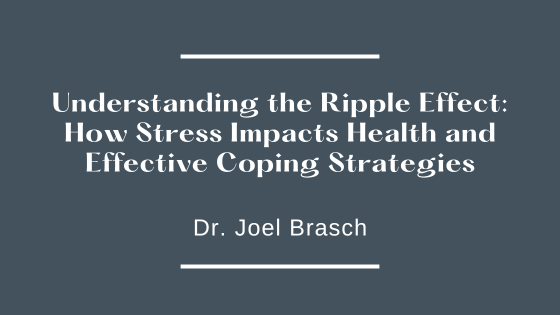In the hustle and bustle of modern life, stress has become an almost ubiquitous companion for many. From the pressures of work deadlines to personal relationships and societal expectations, stress manifests in various forms and can significantly impact both mental and physical health. However, acknowledging its presence is only the first step; understanding its effects and implementing effective coping mechanisms are essential for maintaining overall well-being.
The Impact of Stress on Health:
Stress is more than just a feeling of being overwhelmed; it triggers a cascade of physiological responses within the body. When faced with stress, the body releases hormones like cortisol and adrenaline, preparing it for a “fight or flight” response. While this response is critical for survival in acute situations, prolonged exposure to stress can have detrimental effects on health.
One of the most noticeable impacts of chronic stress is its effect on mental health. Anxiety, depression, and burnout are common outcomes of prolonged exposure to stressors. Moreover, stress can impair cognitive function, leading to difficulties in concentration, memory problems, and decision-making abilities.
However, the effects of stress are not limited to mental health. Research has shown a strong correlation between chronic stress and various physical ailments, including cardiovascular diseases, gastrointestinal disorders, immune system dysfunction, and even accelerated aging. Chronic stress can eventually lead to a weakened immune system, putting individuals at risk of getting infections and illnesses.
Coping Mechanisms and Strategies:
Fortunately, there are numerous coping mechanisms and strategies that individuals can try out to help mitigate the effects of stress on their health:
- Mindfulness and Meditation: Practices like mindfulness meditation have been shown to help reduce overall stress levels by promoting relaxation and helping individuals cultivate awareness of their thoughts and emotions.
- Physical Activity: Regular exercise is not only beneficial for a person’s physical health but also serves as a powerful stress reliever. Exercise releases endorphins, the body’s natural mood lifters, and helps reduce levels of stress hormones.
- Healthy Lifestyle Choices: Maintaining a balanced diet, getting proper sleep, and avoiding any excessive alcohol and caffeine consumption are crucial for managing stress. These lifestyle choices support overall well-being and resilience against stressors.
- Social Support: Building and nurturing a strong support network of friends, family, or support groups can provide emotional reassurance and practical assistance during times of stress.
- Time Management and Prioritization: Learning to manage time effectively and prioritize tasks can help prevent feelings of being overwhelmed and reduce stress levels.
- Seeking Professional Help: In cases where stress becomes overwhelming or begins to significantly impact daily functioning, seeking out support from a licensed mental health professional can be invaluable. Therapy, counseling, or medication may be recommended to address underlying issues and develop coping strategies.
- Engaging in Hobbies and Relaxation Techniques: Engaging in activities that can bring joy and relaxation, such as hobbies, reading, or spending time outside, can provide much-needed respite from stressors.
While stress may be an inevitable part of life, its impact on health can be mitigated through proactive coping mechanisms and strategies. By prioritizing self-care, seeking support when needed, and adopting healthy lifestyle habits, individuals can build resilience and better manage the challenges that come their way. Remember, taking care of both your mental and physical well-being is not a luxury but a necessity for leading a fulfilling and balanced life.

